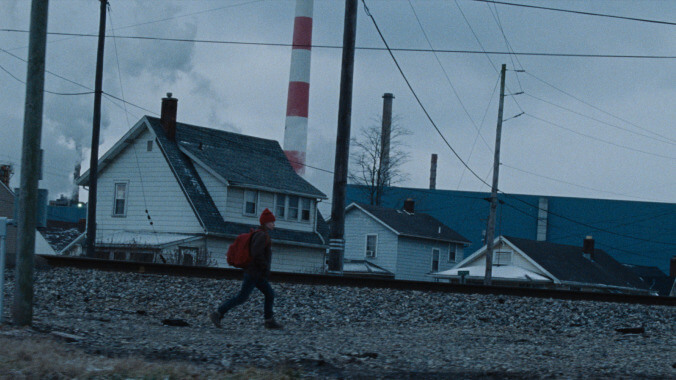Holler sings a familiar tune about a forgotten town
This Appalachian indie has grit, but it suffers from one too many clichés


Ruth (Jessica Barden) has a life that’s straight out of a country-western song. Her mama’s in jail, her brother’s going down a bad path, the water’s been turned off, and the plant just shut down. Everyone keeps telling her that she’s smart enough to make it in the big wide world outside of their dying industrial town, but she has a hard time believing in dreams beyond finding a warm place to sleep at night. Ruth is stuck, and her reluctance to buy in to the idea that a college degree will fix everything is one of the more interesting aspects of this otherwise regrettably typical coming-of-age drama.
Another thing that stands out about Holler is its setting. The film takes place in Jackson, Ohio, a bleak little burg tucked into a forgotten corner of an economically depressed region where the post-industrial Rust Belt meets the entrenched poverty of Appalachia. Although the region has had a strange renaissance of late in Hollywood movies like The Devil All The Time and Hillbilly Elegy, the canon of films about life there that actually speak to the experience of its people is small. (Barbara Loden’s Wanda and the underseen Spring Night, Summer Night come to mind.) As a new addition to this oeuvre, Holler is successful, capturing the fatalism of living in the ruins of an empire whose spoils never benefitted you much anyway.
All that’s left for Ruth and her older brother Blaze (Gus Halper) to do for money—now that their mom Rhonda (Pamela Adlon) has landed behind bars for drugs—is to comb abandoned buildings for the scrap metal that their buddy Hark (Austin Amelio) sells to China at a profit. Some of these methods are more legal than others, and when Hark offers to let Blaze and Ruth crash at his place in exchange for their help with a particularly risky venture, Ruth’s intuition that something isn’t right turns out to be correct. With her options narrowing, she turns to her mom’s best friend and former co-worker, Linda (Becky Ann Baker), for help in a scheme to get her out of Jackson for good.
Writer-director Nicole Riegel positions scenes against pluming chimneys and blazing flare stacks—an apocalyptic background of smoke and fire that fits characters facing the end of the world as they know it. Aside from that, however, Holler looks just like any number of similarly downbeat indies, from its invasive handheld camerawork to its working-class milieu to the grey skies hanging over scraggly wintertime trees. Despite its title, very little of Holler takes place in nature; Hark’s backwoods party palace sits in one of the small valleys that gives the movie its name, but mostly Riegel foregrounds the poisonous air and post-industrial wreckage of the region, not its natural beauty. Even the choice to shoot the movie in 16mm was made in the service of grit (or grain, as the case may be).
Holler comes by that grit honestly: The film is loosely based on Riegel’s own experience growing up in Jackson, and the hopelessness and intergenerational cycles of poverty she depicts are very real. (“We are not college people,” Rhonda sternly informs Ruth when she hears that her daughter has been accepted to what’s implied to be Ohio University—coincidentally, this writer’s alma mater.) And the specificity and authenticity of its setting are the biggest thing Holler has going for it, given that indie drama is rife with variations on this type of social realist coming-of-age tale. The gloomy mood also tamps down thriller elements that appear late in the story, which leaves little but despair for the audience to chew on. That’s true of our protagonist as well: We see the struggles that Ruth goes through, but where Holler falls short of films like Winter’s Bone or Little Woods is that we can never quite figure out what’s driving her desire to leave—or if what she really wants is to stay behind.